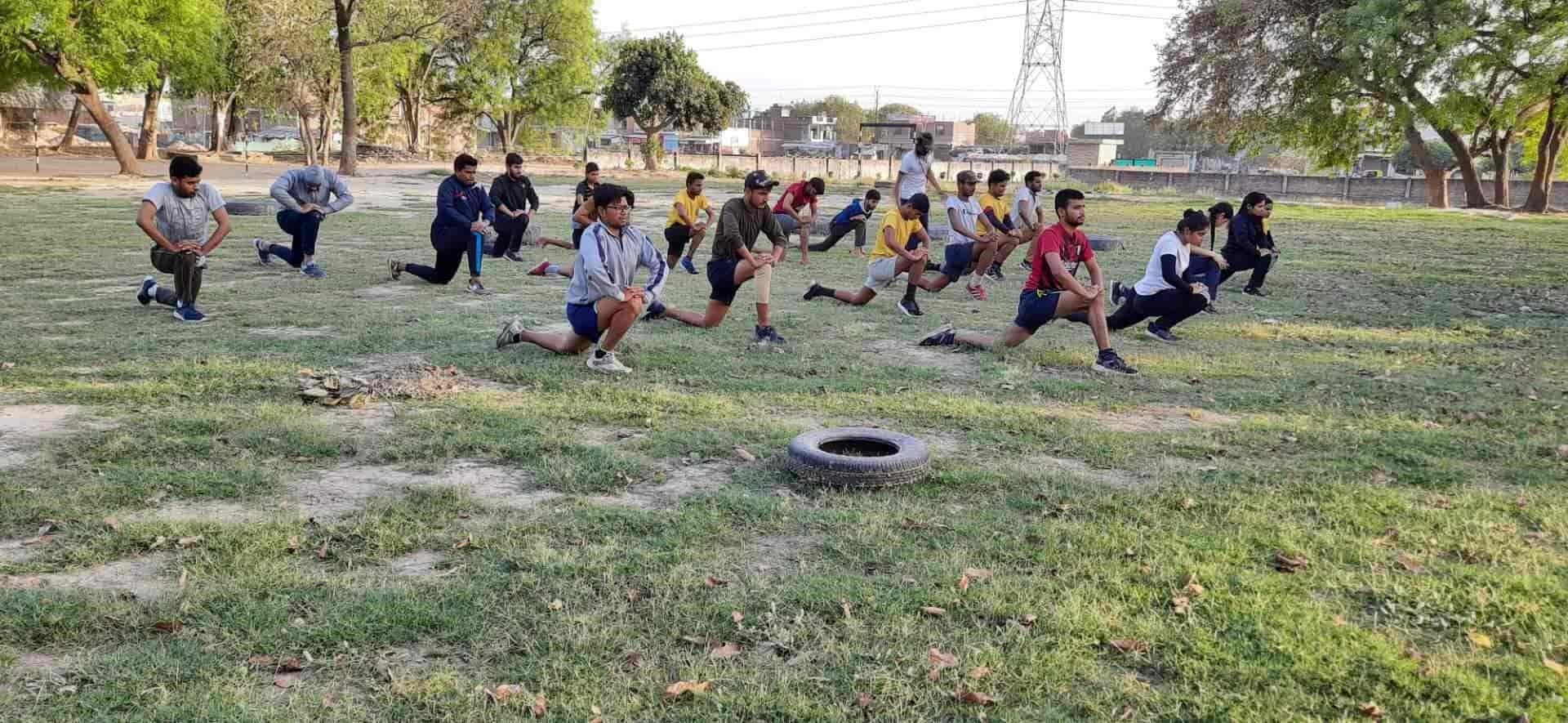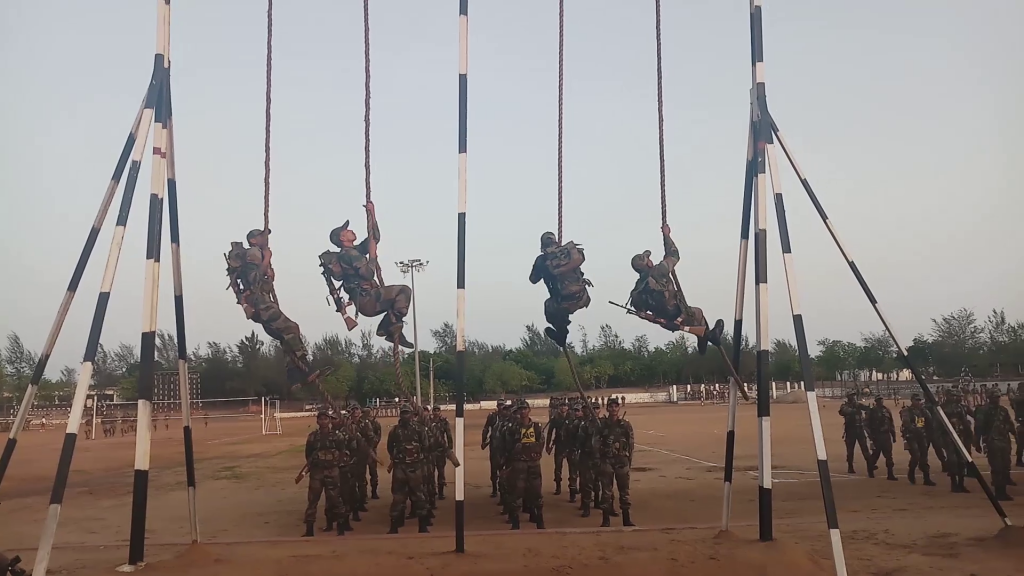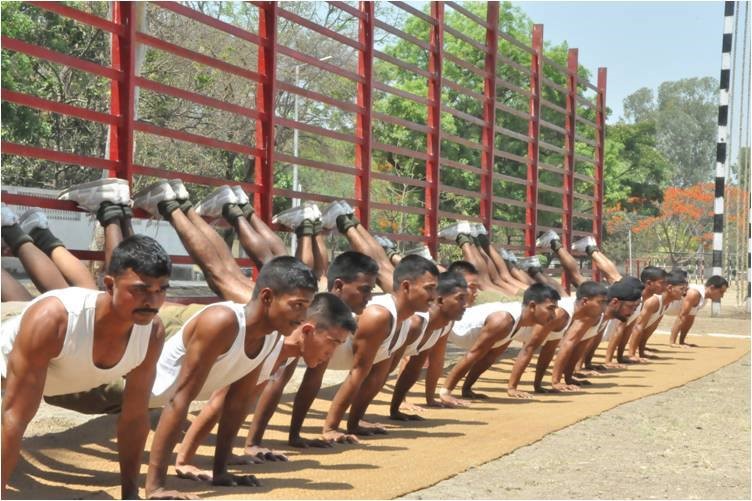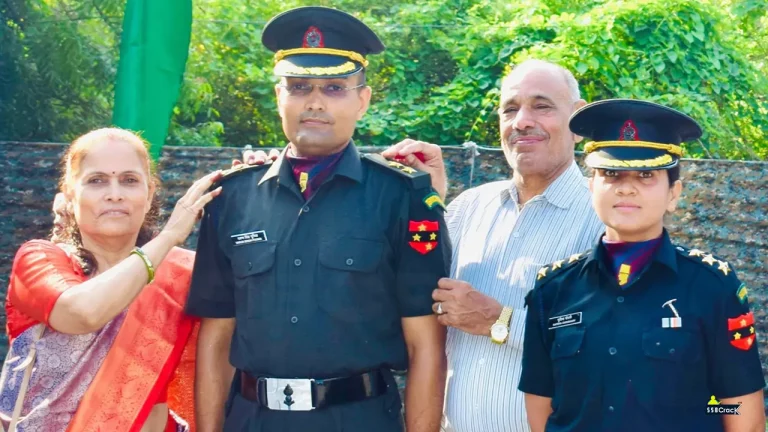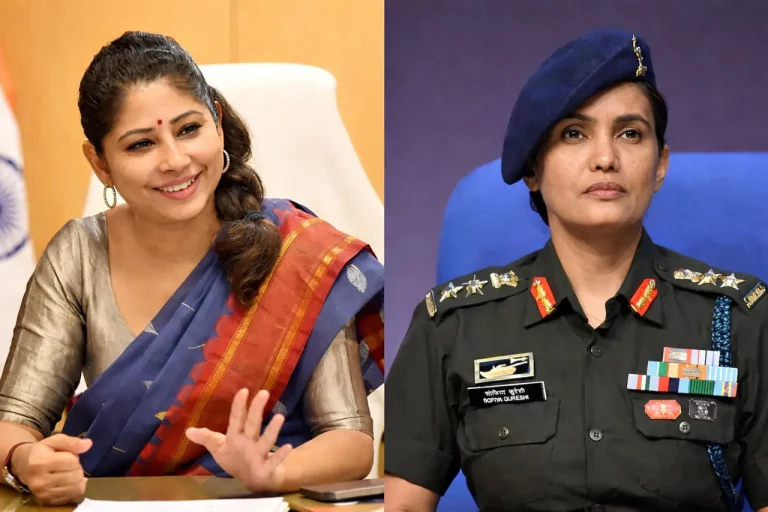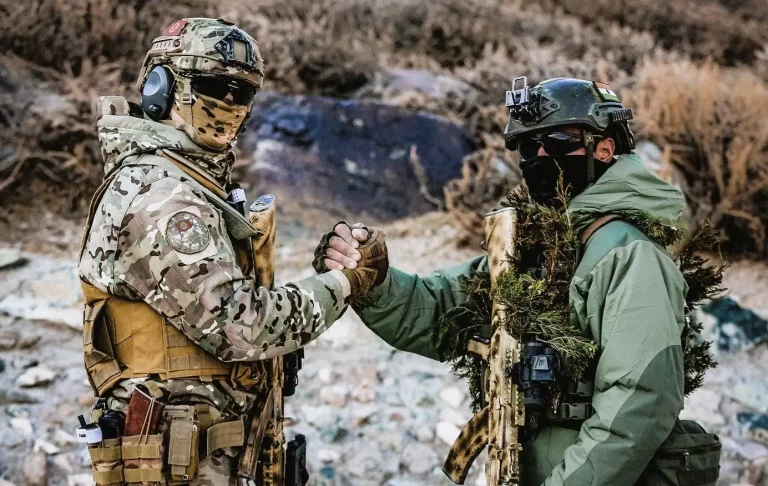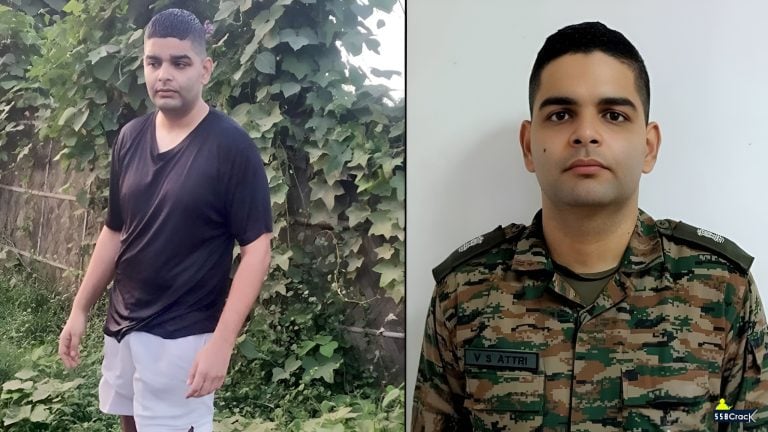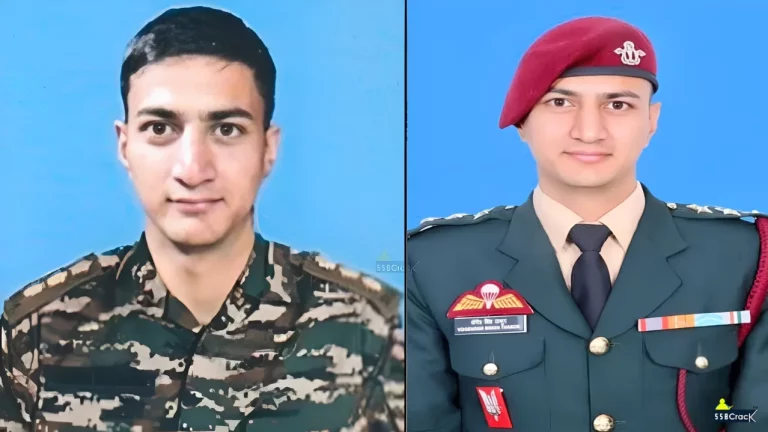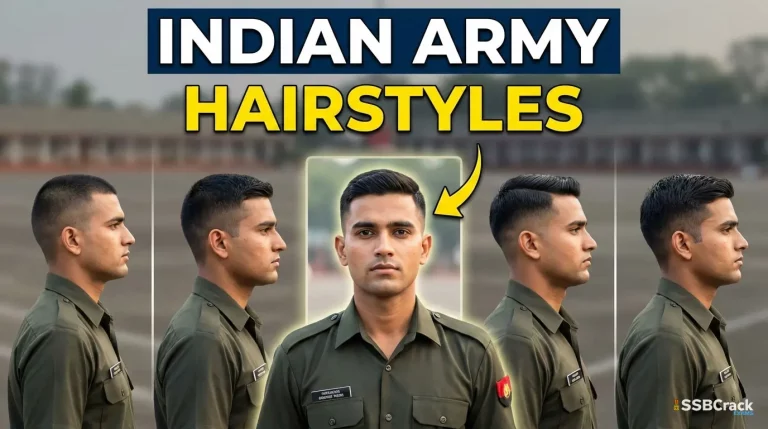If you aspire to join the defence forces, it’s not just about academic excellence; physical fitness is equally crucial. This article delves into why staying in peak physical condition is vital for success in the Indian Army, exploring various aspects of physical fitness, its connection to success in defence roles, and practical tips to maintain fitness.
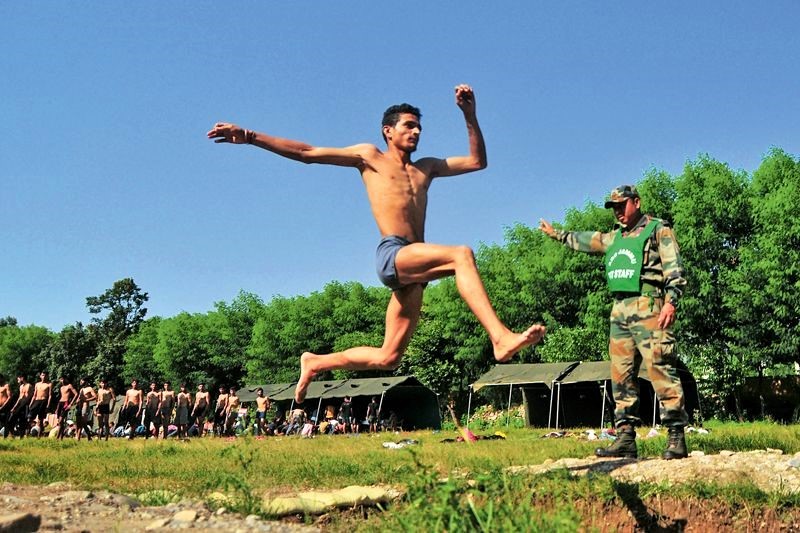
Importance of Physical Fitness for Defence Aspirants
Physical fitness is more than just about looking strong; it’s about being equipped for the rigorous demands of military life. Defence personnel face numerous physical challenges, from carrying heavy loads to enduring harsh weather and completing demanding missions. A fit body is indispensable for these tasks.
Key Reasons Why Physical Fitness is Crucial
- Preparation for Rigorous Tasks: The defence forces require individuals to perform strenuous activities, such as carrying heavy equipment, traversing challenging terrains, and enduring long periods of physical exertion. A high level of physical fitness ensures aspirants are ready for these demands.
- Ease in Passing Physical Tests: Physical fitness acts as a cornerstone in successfully passing the various physical assessments required during the selection process. These tests evaluate endurance, strength, agility, and overall physical capability.
- Effective Challenge Management: The ability to handle physical challenges efficiently during missions and training is paramount. Fitness enhances resilience and adaptability in demanding situations.
- Health and Activity Levels: Beyond passing tests, maintaining physical fitness contributes to overall health and energy levels, ensuring readiness for the ongoing demands of a military career.
- Building Endurance and Strength: Regular physical activities like running and strength training build the necessary endurance and muscle strength required for defence tasks, making aspirants better prepared for their roles.
- Team Collaboration: Teamwork is essential in the defence forces. Being physically fit enables individuals to support their teammates effectively during missions, fostering better group dynamics and success.
- Long-Term Service Readiness: Physical fitness is a lifelong commitment. It ensures that defence personnel are prepared for the physical challenges throughout their careers, maintaining operational effectiveness over time.
- Boosting Confidence: Knowing that you are physically fit enhances self-confidence, an essential trait in the defence forces. Confidence aids in tackling tasks with a strong and positive mindset.
Importance of Physical Fitness in SSB (Services Selection Board)
Strategic Advantage
Physical fitness offers a strategic advantage for defence aspirants, particularly during the SSB process. It significantly increases the likelihood of success, laying a robust foundation for a sustained and thriving career in the defence forces.
- Preparedness for SSB Physical Tests: The SSB process includes rigorous physical tests that assess candidates’ fitness levels. Being in top physical condition ensures aspirants can tackle these tests with confidence and ease.
- Enhanced Performance in Evaluations: SSB evaluations are comprehensive, assessing both intellectual and physical capabilities. A fit candidate performs better overall, showcasing their readiness for the physical demands of defence service.
- Endurance for SSB Tasks: Many tasks in the SSB tests require high endurance levels. Physical fitness is crucial for excelling in these tasks, demonstrating a candidate’s stamina and preparedness.
- Positive Impact on Selection: A high level of physical fitness positively influences the selection process. It reflects a candidate’s dedication and ability to meet the physical demands of a military career.
- Confidence During Interviews: Physical fitness not only impacts test performance but also boosts confidence during interviews. Confidence is a critical attribute that assessors look for in candidates.
- Effective Team Participation: SSB involves group activities where teamwork is vital. Being fit ensures active participation and contribution to the team’s success, a key factor in the selection process.
- Long-Term Success: Physical fitness is not just about passing immediate tests; it’s a long-term investment in one’s career. Staying fit ensures preparedness for the physical challenges throughout a defence career.
- Overall Readiness: The SSB tests challenge candidates both mentally and physically. Physical fitness ensures overall readiness to face these challenges, leaving a lasting positive impression on the assessors.
Components of Physical Fitness for Defence Aspirants
Cardiorespiratory Endurance
Definition: The ability of the heart, lungs, and blood vessels to supply oxygen to the body during sustained physical activity.
Importance:
- Essential for long-duration activities like marches and runs.
- Increases stamina and reduces fatigue during prolonged operations.
Training Tips:
- Engage in regular aerobic exercises such as running, cycling, and swimming.
- Incorporate interval training to enhance endurance and cardiovascular health.
Muscular Strength
Definition: The ability of muscles to exert force during an activity.
Importance:
- Vital for tasks requiring lifting, carrying, and manual operations.
- Enhances overall body strength and performance in physical tasks.
Training Tips:
- Include weightlifting exercises focusing on major muscle groups.
- Perform bodyweight exercises like push-ups, pull-ups, and squats.
Muscular Endurance
Definition: The ability of muscles to perform continuous without fatigue.
Importance:
- Crucial for repetitive tasks such as climbing, digging, and continuous movements.
- Helps maintain performance over extended periods.
Training Tips:
- Perform high-repetition sets of resistance exercises.
- Incorporate endurance-focused activities like rowing and circuit training.
Flexibility
Definition: The range of motion available at a joint.
Importance:
- Prevents injuries during physical activities.
- Enhances movement efficiency and performance.
Training Tips:
- Regular stretching exercises focusing on all major muscle groups.
- Practice yoga or Pilates to improve overall flexibility and body control.
Body Composition
Definition: The ratio of fat to lean mass in the body.
Importance:
- A healthy body composition contributes to overall fitness and performance.
- Reduces the risk of health issues and improves physical capabilities.
Training Tips:
- Maintain a balanced diet rich in nutrients.
- Engage in both aerobic and resistance training to optimize body composition.
Practical Tips for Maintaining Physical Fitness
Regular Exercise Routine
Consistency is Key:
- Establish a regular exercise routine that includes aerobic, strength, and flexibility training.
- Aim for at least 150 minutes of moderate-intensity or 75 minutes of high-intensity exercise per week.
Variety in Training:
- Mix different types of exercises to target all components of fitness.
- Include activities like running, swimming, weightlifting, and stretching in your routine.
Balanced Nutrition
Healthy Eating Habits:
- Consume a balanced diet with the right proportion of carbohydrates, proteins, and fats.
- Focus on whole foods, including fruits, vegetables, lean proteins, and whole grains.
Hydration:
- Stay hydrated by drinking adequate water throughout the day.
- Avoid sugary drinks and excessive caffeine.
Adequate Rest and Recovery
Importance of Sleep:
- Ensure 7-9 hours of quality sleep each night for optimal recovery and performance.
- Establish a regular sleep schedule.
Rest Days:
- Incorporate rest days into your training routine to allow muscles to recover and prevent burnout.
- Engage in light activities like walking or yoga on rest days.
Mental Health and Stress Management
Mental Resilience:
- Practice mindfulness and stress-reduction techniques like meditation and deep breathing.
- Maintain a positive mindset and mental toughness.
Support Systems:
- Stay connected with friends, family, and fellow aspirants for support and motivation.
- Seek professional help if needed to manage stress and mental health challenges.
Conclusion
The path to a successful career in the defence forces is built on more than just academic prowess. Physical fitness is a critical component that not only helps aspirants pass selection tests but also prepares them for the challenges of a demanding military career. By focusing on the various aspects of physical fitness and incorporating practical tips into daily routines, defence aspirants can enhance their readiness and increase their chances of success. Remember, physical fitness is not just an option; it’s a necessity for anyone serious about serving in the defence forces. Start your fitness journey today, stay committed, and prepare to serve your nation with strength and confidence.
FAQs
1. Why is physical fitness important for defence aspirants?
Physical fitness prepares aspirants for the demanding tasks and challenges they will face in the defence forces.
2. How does physical fitness contribute to success in the defence forces?
It enhances performance, resilience, and readiness for military duties, ensuring aspirants can meet the physical demands of service effectively.
3. What specific physical attributes are essential for defence aspirants?
Attributes such as cardiorespiratory endurance, muscular strength, endurance, flexibility, and optimal body composition are crucial for defence roles.
4. How can defence aspirants improve their physical fitness?
By following a regular exercise routine, maintaining a balanced diet, ensuring adequate rest and recovery, and incorporating stress management techniques.
5. Is physical fitness essential during the selection process for the defence forces?
Yes, physical fitness is vital, especially during selection tests like the Services Selection Board (SSB) assessments, as it demonstrates readiness for military service.
